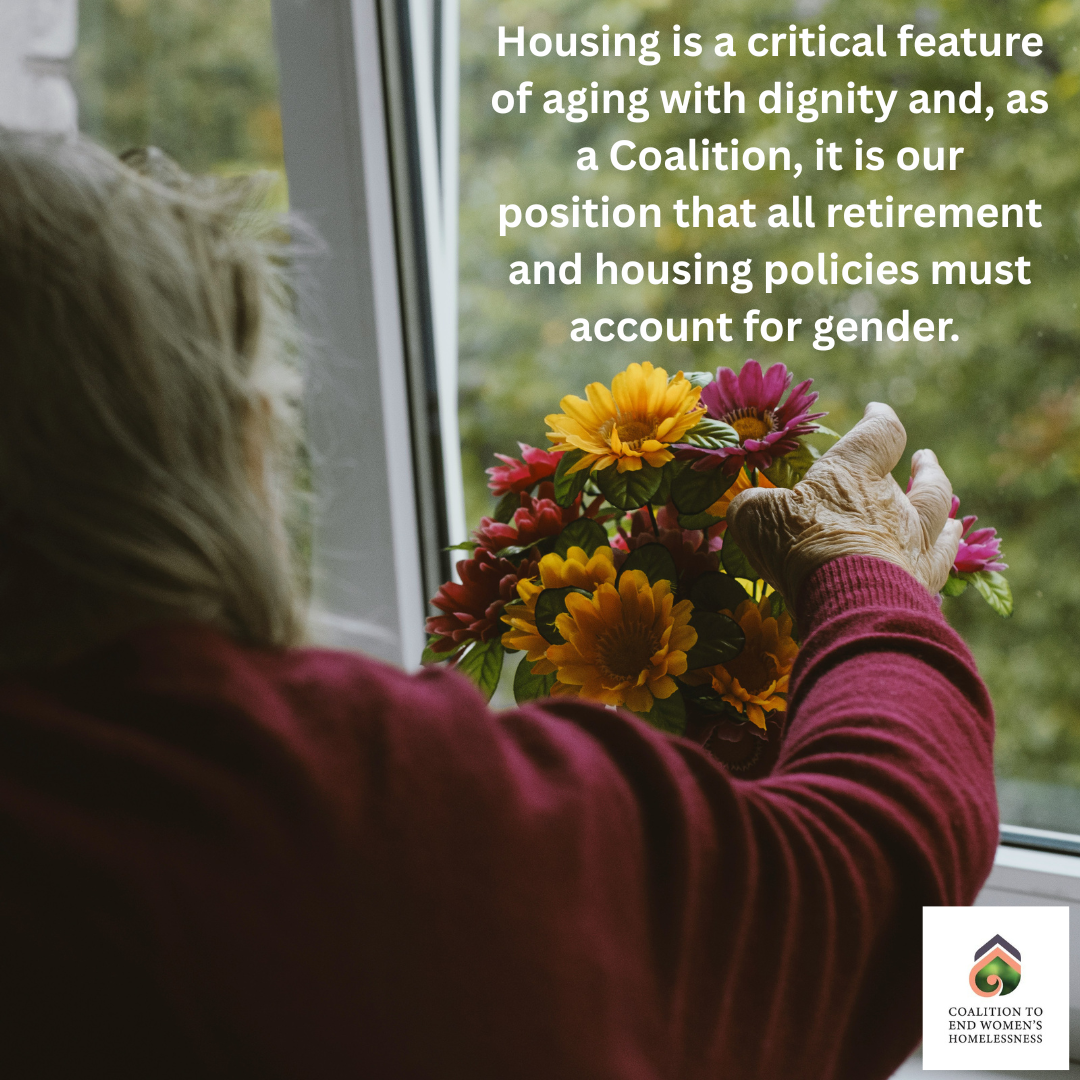When a lifetime of inequity shapes women’s retirement
The Retirement Commission has published its triennial review of retirement policies, responding to Terms of Reference from Cabinet that included women’s experiences in retirement. Specifically, the review explores why “women often have lower KiwiSaver balances and how this affects their financial security”, with the aim of identifying ways to make the system fairer.
We are clear at the Coalition to End Women’s Homelessness that the increasing prevalence of severe housing deprivation being experienced by older women is an outcome of the ethnic and gender pay gaps experienced by all women, but especially Māori and Pasifika women, over the course of their lives. The pay gap becomes the housing security gap.
The statistics in the Commission's review bear this out:
“In 2024, men had on average 25% more in their KiwiSaver accounts than women. The gap increases with age, peaking at 37% for people aged 56 to 65, which was equivalent to around $20,000 less as women approach retirement.” (p41)
Meanwhile the Commission points out that it is women who are living longer, “Women make up 53% of the population aged 65 (increasing to 55% of the population 75 and over) so are disproportionally affected by changes to NZ Super settings.” (p40)
Our Kaihautū, Dr. Kathie Irwin describes this as “Compound Interest/Compound Impact”. In our society, some people experience the positive compounding effect of having systems and opportunities that are designed for them. Others experience the compounding negative impact of having needs, experiences, or worldviews that are different from the way the system is designed to operate.
For the current cohort of women entering retirement, the compound impact of years of, as the Commission describes it, “lower lifetime earnings, a higher prevalence of part-time employment and unpaid caregiving responsibilities, as well as persistent pay disparities” and a social safety net that does not include a wide range of affordable, accessible housing options, means that many are relying on their children, seeking support from social services, and sleeping in their cars - sometimes after a lifetime of work or even owning their own home.
This inequity is not by accident. It is by design. Colonisation as a model was about putting structures in place that would privilege the settler society as it was in the late 1800s and early 1900s. Laws, policies, governance - all of them centred Pākēha men. While we can’t change history, we can recognise the evidence before us in our current retirement outcomes and change the way we make the invisible, visible - and do more to centre women’s experiences of ageing in our housing policies and service design. Especially, and urgently, the experiences of wāhine Māori.
Housing is a critical feature of aging with dignity and, as a Coalition, it is our position that all retirement and housing policies must account for gender. Women - our Nanas, our kuia - are living longer, but with less.
We need to act now on designing that out as a feature of our system. But it will take a cross-agency and cross-party approach for that to happen. As the Commission notes:
“This is a classic example of a horizontal policy challenge operating within a vertically accountable system.” (p60)
There is no clear line of accountability within the machinery of government on the needs of older women and without it, we are left with only tactical changes and the operational level - like a few extra accessible homes being built by Kāinga Ora under the last government.
The Retirement Commission’s calls to improve data quality for more targeted intervention, extend the Government KiwiSaver parental leave contribution to $1,000 per parental leave period, and increase government contribution matching rates for lower-income earners and lower the income cap are a start.
You can hear more about our position on the connection between pay inequity and housing insecurity at our submission to the People’s Select Committee on Pay Equity here
Read The 2025 Review of Retirement Income Policies (RRIP) here

